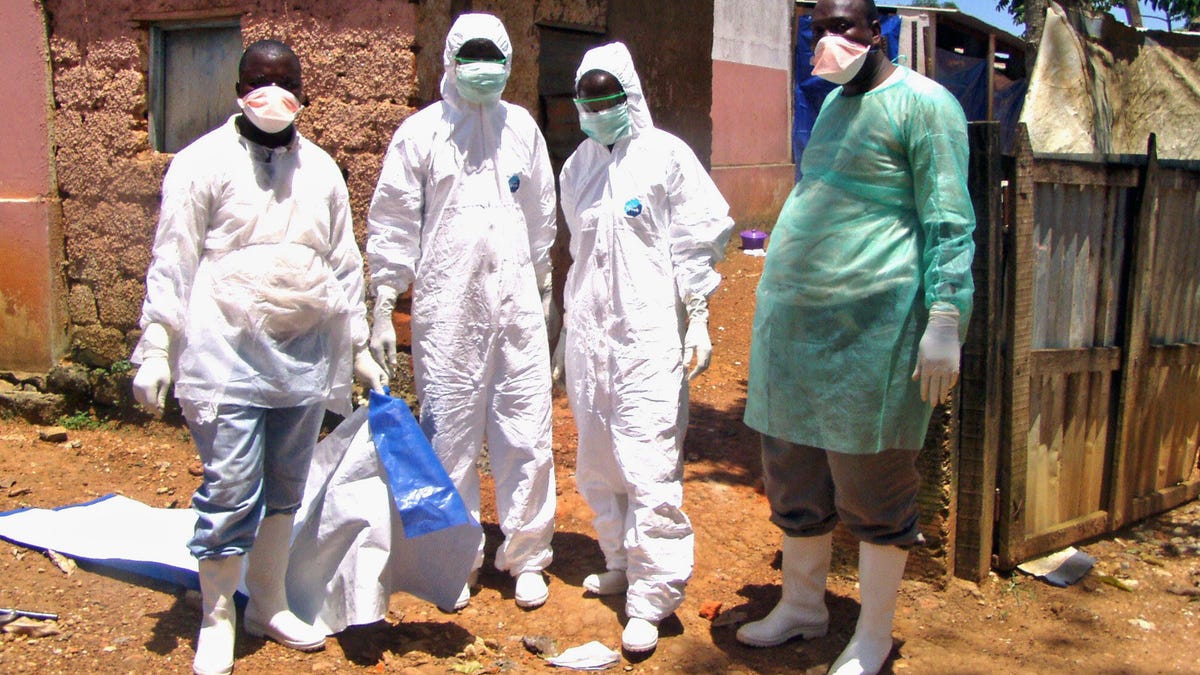
March 27, 2005: Medical workers are seen wearing protection equipment during deadly Marburg hemorrhagic fever outbreak in Uige, northern Angola. (REUTERS)
KAMPALA – A man has died in Uganda's capital after an outbreak of Marburg, a highly infectious hemorrhagic fever similar to Ebola, authorities said on Sunday, adding that a total of 80 people who came into contact with him were quarantined.
Marburg starts with a severe headache followed by hemorrhaging and leads to death in 80 percent or more of cases in about nine days. It is from the same family of viruses as Ebola, which has killed thousands in West Africa in recent months.
There is no vaccine or specific treatment for the Marburg virus, which is transmitted through bodily fluids such as saliva and blood or by handling infected wild animals such as monkeys.
The health ministry said in a statement that the 30-year old radiographer died on Sept. 28 while working at a hospital in Kampala. He had started feeling unwell about 10 days earlier, and his condition kept deteriorating. He complained of headache, abdominal pain, vomiting blood and diarrhea.
Samples were taken and tested at the Uganda Virus Research Institute, and results confirmed the man had the Marburg virus.
Doctors said his brother, one of the people he came into contact with, has developed similar symptoms and has been quarantined in a group of 80 others, 60 of whom are health workers.
Those quarantined came into contact with the victim either in Kampala or his burial place in Kasese, a district in western Uganda bordering the Democratic Republic of Congo.
Marburg has a shorter incubation period of 14 days, compared with Ebola's 21.
The current outbreak of Ebola, the deadliest on record so far, has killed more than 3,400 people in four West African countries.
Uganda has been hit by several outbreaks of Marburg and Ebola in the past, but it has contained the outbreaks quickly, limiting fatalities.
Its worst occurrence of hemorrhagic fever occurred in 2000, when 425 people contracted Ebola and more than half of them died.








































